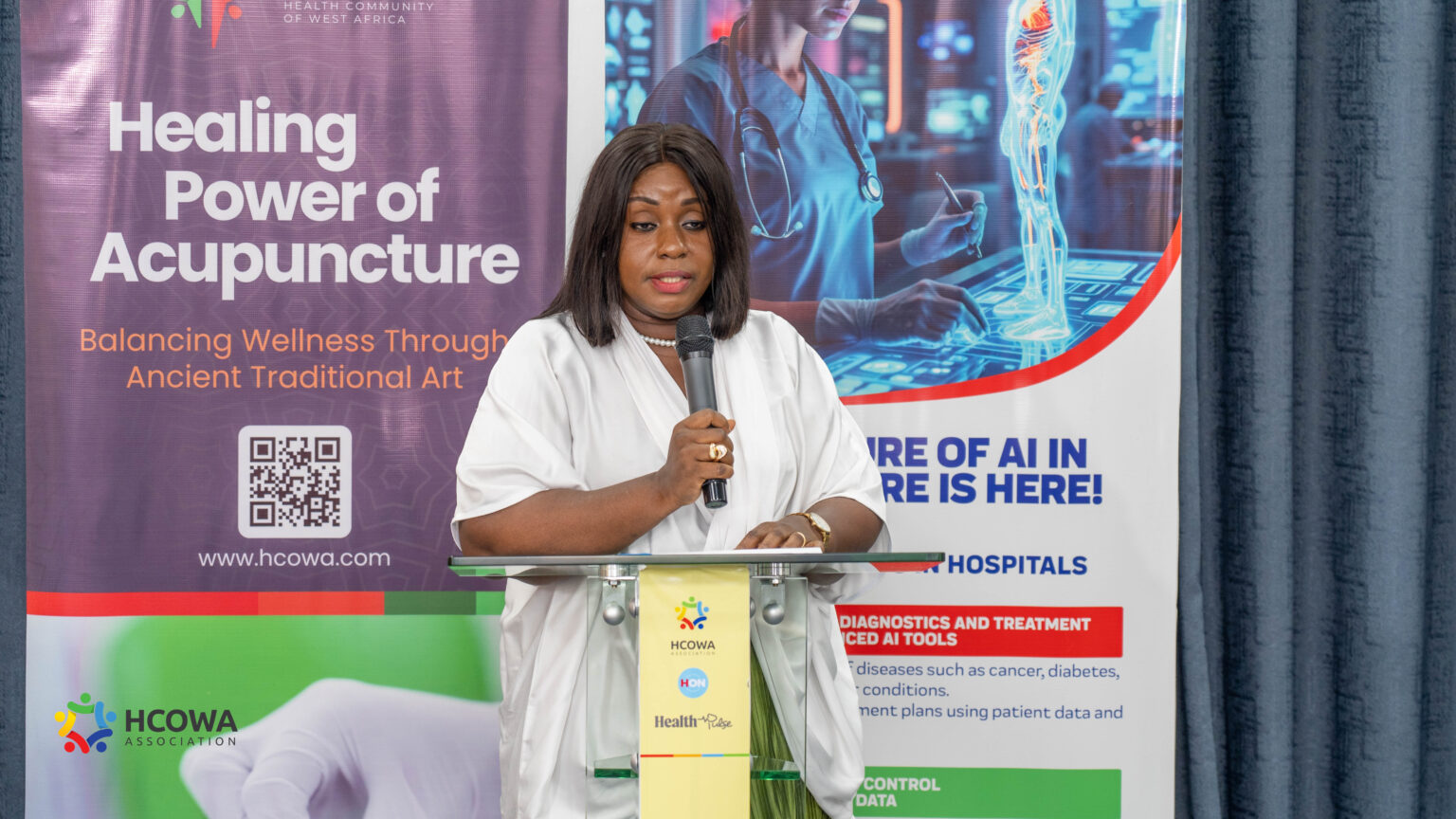The President of the Ghana Association of Medical Herbalists (GAMH), Dr. MH Sandra Ashong, has called for the integration of artificial intelligence (AI) in traditional medicine to revolutionize the field and improve healthcare delivery.
Speaking at a seminar organized by the Health Community of West Africa Association (HCOWA), on the Development and Application of Smart Chinese Medicine in Healthcare, Dr. Ashong emphasized the need to bridge traditional medicine with modern technology.
The seminar, themed “Bridging Traditional and Technology: AI-Driven Innovations in African and Chinese Medicine,” brought together key stakeholders in the persons of Dr. Yakubu Tubor Yusuf, Registrar of the Traditional Medicine Practice Council, Dr. Okogye Abibiduro Nana Kwadwo Obiri, General Secretary of the Ghana Federation of Traditional Medicine Practitioners Associations (GHAFTRAM), Dr. (Med) Ohene Kwabena Safo, General Manager of Kantanka Herbal Pharmaceuticals and Research Centre and Sihong Jiang President, Health Community of West Africa (HCOWA) Association.

Dr. Ashong highlighted that while herbal medicine has long been perceived as unorthodox, technological advancements are transforming the industry into a more structured and scientifically backed discipline. “Artificial intelligence has been explored across all fields of herbal medicine, including regulation, research, manufacturing, and clinical medicine. The integration of AI in these areas can enhance efficiency, accuracy, and patient care,” she stated.
Dr. Ashong underscored AI’s role in drug discovery, explaining that AI-powered tools such as machine learning and deep learning can analyze vast datasets to identify potential herbal compounds, predict efficacy, and streamline clinical trials. “AI helps link chemical compositions of herbs with diseases, enabling faster identification of new treatments,” she said.
She further outlined AI’s impact on clinical care, noting that AI-driven innovations can improve diagnostic accuracy, personalize treatments, and optimize healthcare resources. She cited medical imaging, predictive analytics, and AI-powered virtual health assistants as key applications that could benefit herbal medical practice.
“AI-powered predictive models can analyze patient data, anticipate health risks, and help medical herbalists provide better preventive care. Additionally, AI-based virtual assistants can support patient engagement by answering questions, reminding patients to take herbal medications, and even scheduling appointments,” Dr. Ashong explained.
Dr. Ashong also noted that AI is revolutionizing the manufacturing of herbal medicine by improving quality control, supply chain optimization, and predictive maintenance.

In concluding, Dr. Ashong urged stakeholders in the traditional medicine industry to embrace AI in their work, emphasizing that “traditional medicine is no longer primitive.” She called for increased collaboration between technology developers and herbal medicine practitioners to harness AI’s full potential in advancing healthcare.
The Seminar on the Development and Application of Smart Chinese Medicine in Healthcare explored the integration of Artificial Intelligence (AI) and Traditional Chinese Medicine (TCM) concluding that AI has the potential to revolutionize TCM by improving efficiency, research capabilities, and precision in diagnosis and treatment.



